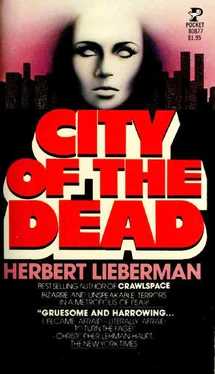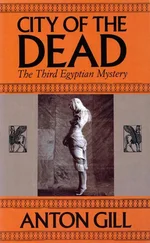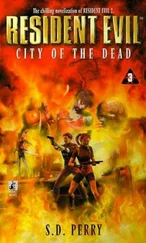If it was privacy Meacham wanted in order to negotiate their transaction, he certainly had it. At that hour of the morning there is no traffic, and except for the occasional Bowery wino huddling in a doorway or a Chinese waiter scurrying homeward, there is virtually no one in the street. Most of the restaurants have already dimmed their lights and closed. Only where Konig sits does a solitary red neon dragon, with lights that run up and down its silhouette, blink hypnotically in the mist-hung night.
At exactly 2:58 Konig turns the key in his ignition. The engine turns over and he slips the car into drive. Before edging out onto the causeway leading to the bridge, he glances back over his shoulder to make certain that he himself is not being followed by the police. Once he has satisfied himself on that score, he proceeds to roll out.
The cobbled road over the bridge is slick from the rain and he moves slowly, not so much as a matter of precaution, but as a matter of timing. He wants to arrive precisely at 3 a.m. With the exception of the big subway cars rattling along beside him on the bridge, there is nothing in sight.
Somewhere just past the midpoint of the bridge it occurs to Konig that his mouth is very dry, his palms moist. But aside from a few vague, unarticulated misgivings, he is sanguine about the outcome of events.
Approaching the Brooklyn end of the bridge, he wipes the misted windshield again with the balled Kleenex and squints through the glass. Up ahead he can see nothing, and at the prospect of that, his heart begins to sink.
Glancing quickly at the illuminated dial of his watch, he sees that it is now exactly 3 a.m. Konig rolls to a stop at the far end of the bridge, shuts down the ignition, turns off the lights, and waits. The cold drizzle drums forlornly on the roof and hood. There is nothing in sight and he is profoundly alone. It’s unthinkable that they would drag him out here at three in the morning and then, as a kind of test, or possibly just out of revenge, not show. Unthinkable. Or is it?
By 3:20 still no one has shown, and he has almost concluded that no one will. With a sense of sick, almost nauseous, grief, he is about to start up his car and drive away forever from that gray, cold, forsaken place. But just at that moment, almost spitefully, as if it had been watching all the while with a kind of vicious glee, a car rolls placidly around the corner, its headlights bearing down upon him, and moves like a white, phantomy object toward him out of the mist.
At a certain point, perhaps ten yards off, the car executes a graceful, unhurried U-turn, then backs around into the spot directly before him. Its motor and lights go off at once.
Scarcely breathing, Konig sits, frozen rigid, and waits. There is enough light from the bridge for him to see that the rear license plate of the car ahead has been covered over with a piece of burlap. He sits waiting there, watching the car, wondering if someone will get out, if he is to be given new instructions, if he should approach their car. Nothing seems to be happening—and still he waits.
Suddenly the lights of the white convertible switch on. He hears the engine turning over up ahead. Then the red blinker signals him right, and slowly, at last, they move out into the night.
It is a curious ride, aimless, meandering. Intentionally so. They turn here and there at random, stop and start for no discernible reason, all of it conducted at a speed of no more than twenty miles an hour. Clearly they are watching, and very closely, to see if any car attempts to follow Konig.
At that hour and in those narrow, huddled streets it would be impossible for anyone to follow without its becoming quickly apparent to the people in the car ahead. There is simply no one else out and driving at that hour. The cold, drizzly rain has even eliminated the occasional cruising cab.
From the bridge they move down Flatbush Avenue and out through Prospect Park. Somewhere in the middle of the park, on a road lined with woods, the white convertible stops. Konig rolls slowly up behind it and he too stops. Sitting there with his window open, listening to the rain dripping in the trees and his heart thumping in his chest, he waits.
In the next moment the white convertible moves out again, this time driving out of the park and onto Ocean Parkway. The stopping and starting business goes on exasperatingly—once at Ditmas Avenue and several times on Kings Highway.
At least a half-dozen times the white convertible swerves sharply, inexplicably, into residential blocks, winding slowly down them between large apartment buildings where people sleep unknowing and uncaring. Thus, traveling a bewildering route, the car ahead winds, turns, spins around on itself, while Konig is obliged to follow.
Several times during those interminable pauses, while the car up ahead merely sits there, its taillights glowing, malevolent and taunting, Konig is certain that this is the place. Now is the time. Any moment now they’ll signal him to pull alongside and pass the money. But no. Instead they start up again, driving back onto Ocean Parkway, moving toward Shore Parkway, the awful winding, zigzagging, spinning about, resuming itself. Are they moving toward the water? They don’t get on the Shore Parkway. Instead they go under the parkway, past Emmons Avenue, and out toward Coney Island.
It’s approaching 4 a.m. now and still they’ve made no signal to him, no gesture. It is still this exasperating stop-and-start business, then sit and wait in the red taillight glow a few feet behind.
It’s too early in the season for the amusement park to have opened, and they ride now parallel to the boardwalk in the shadow of those huge, unearthly, unattended structures—the Roller Coaster, the Whip, the Cyclone, the Parachute Jump, past the weirdly baroque architecture of the Steeplechase. All seem to be waiting there for some cosmic ringmaster to throw the switch. And then the lights going up, the music starting, and once again all the wild tumult of motion—swaying, dipping, lurching, whirling, rattling, roaring through the gaudy night.
The white convertible turns slowly into one of the fairground’s parking lots. It is deserted, and all around it are the boarded-up windows of concessionaires—frankfurter and pizza stands, custard and corn-on-the-cob joints. The convertible rolls to a stop now, motor off, lights out, and waits. They’re right at the water’s edge. The mist is thicker here. Foghorns boom dolefully far out to sea. The air is redolent of salt and rotting seaweed. Sitting by the open window, the chill night air on his face, Konig can hear the tolling of a buoy not far off shore.
In the dim light of his dashboard, he checks his clock—4:15 a.m. He pats the Gladstone bag beside him and waits.
Shortly he hears the motor of the convertible start up again, and with a sinking heart, he prepares to roll out once more. But this time something is different—a white-gloved hand protruding from the front right-hand window is waving him forward.
Eager to comply, Konig jerks and lurches his car forward, the white hand signaling him to stop directly parallel to it. He does so, shuddering to a halt directly opposite an open window.
It is pitch-dark in the parking lot, and in that mist-thick darkness he cannot see the occupants of the car, or even tell how many there are. He knows there are several, but all there is between him and them is that disembodied white-gloved hand thrust out toward him, waiting patiently and immobile.
Clumsily but without hesitation, he tugs the Gladstone bag across the seat, hoists it through the window and passes it anxiously to that waiting white hand. In all of that transaction not a word passes.
In the next moment the bag and the hand withdraw into the pitchy darkness of the convertible, the car’s motor guns, and it roars off into the night, its headlights still extinguished. Far up ahead, Konig can hear its tires squeal around a corner, then nothing more.
Читать дальше












